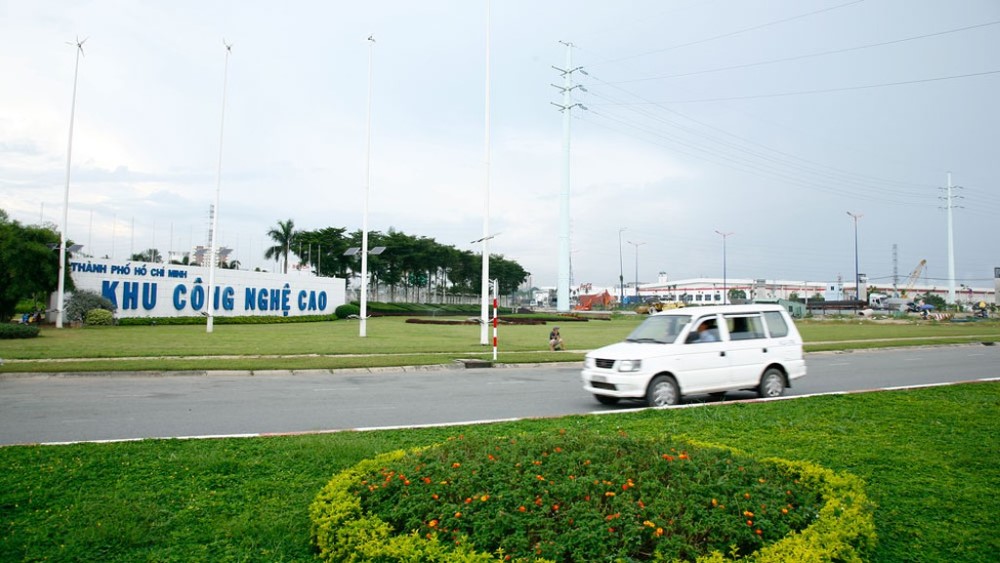Updating information on the registration of branches and representative offices for private and joint-stock companies in Vietnam

This article will provide comprehensive information on how to register the operating license for branches and representative offices in Vietnam, as well as the functions and obligations of these branches or representative offices in Vietnam for businesses.
What is a Representative Office? What is a Branch?
A representative office is an office established by a business or legal entity to carry out marketing, transactional, and other activities abroad without being a branch or subsidiary. Representative offices are usually easier to establish than branches or subsidiaries because they are not used in business operations. According to Article 44, Clause 2 of the 2020 Law on Enterprises, a representative office is a dependent unit of a business. This unit is tasked with representing the business’s interests under authorization, protecting those interests, and the representative office does not perform the business functions of the enterprise.

A representative office in Vietnam is regulated not to have the ability to conduct business functions
Representative offices in Vietnam are a common choice for foreign businesses looking to access the Vietnamese market with low investment. Representative offices open up opportunities to enter new markets with lower investment costs compared to opening branches or offices.
According to Article 44, Clause 1 of the Law on Enterprises, a branch is a dependent unit of a business that performs part or all of the functions of the business, including acting as a representative under authorization. The industry in which the branch operates must align with the industry in which the business operates. Therefore, a branch has broader functions, with the ability to operate fully or partially in the same functions as the business, while a representative office is often restricted from engaging in the primary function of business.

A branch can operate with functions similar to a business but does not have legal status as a separate legal entity like a business
Authority and Activities of Representative Offices and Branches
Representative offices are usually established to perform two main functions:
- Serve as a liaison office.
- Assist the business in accessing new markets and partners, providing information, and conducting research activities.
Additionally, representative offices are not allowed to engage in any profit-generating business activities and cannot independently sign contracts on behalf of themselves. All operating expenses of the representative office will be accounted for and entirely dependent on the business.
A representative office in Vietnam is a suitable choice when foreign businesses want to establish a unit with the function of supporting the business in approaching customers and partners without engaging in business functions. This helps businesses avoid additional complex tax reporting obligations. For certain industries with specific characteristics such as tourism, construction, education consulting, etc., establishing representative offices in multiple locations to reach customers is a reasonable option.
>>> View more: Establishing Enterprises in High-Tech Parks – Advantageous Environment for the Semiconductor Industry

A representative office is an effective choice for many specialized industries
Business branches have broader functions, including conducting business activities on behalf of the business under authorization. However, branches do not have legal personality (as a separate legal entity).
Requirements and Procedures for Obtaining a License
The registration dossier for branches and representative offices in Vietnam is accepted when it meets the following conditions:
- Complete documentation as regulated in Decree No. 01/2021/NĐ-CP.
- The branch or representative office must be named according to the regulations in Article 40 of the Business Law.
- Provide the address and contact information of the applicant for the business.
- Pay the registration fee as required.
To open a branch or representative office in Vietnam, businesses need to prepare a dossier for registering the operation of the branch or representative office, including:
- Notification of the establishment of the branch or representative office.
- A certified copy of the meeting minutes or written decision of the business management board on the establishment of the branch or representative office.
- A valid copy of one of the personal identification documents of the head of the branch or representative office.
The procedure to open a branch or representative office in Vietnam can be carried out through the following steps:
- Step 1: Prepare the required documents on the National Public Service Portal.
- Step 2: Submit the application at the Business Registration Office – Department of Planning and Investment of the province/city where the branch or representative office is located. Businesses can choose one of three submission methods: direct submission, submission via Vietnam Post (VNPost) services, and online submission on the National Information Portal for Business Registration.
- Step 3: Wait for the issuance of the representative office license. Typically, after 3 working days, the Business Registration Office will review the application and provide feedback. If the application is valid, the business will be issued a certificate of registration for the branch or representative office. If the application is deemed invalid, the business will be notified to make corrections or additions to the dossier before resubmitting.
Post-Licensing Obligations for Branches and Representative Offices in Vietnam
After obtaining the license for the branch or representative office in Vietnam, businesses need to undertake several activities:
- Create a seal for the branch or representative office. For representative offices, a seal is not mandatory but typically includes the name, address, and contact number. Branches have two options for accounting: independent accounting or dependent accounting. If independent accounting is chosen, the branch must create a separate seal and notify the relevant authorities before use. If dependent accounting is chosen, the branch is not required to use a separate seal and can use the seal of the parent company instead.

Branches and representative offices can register their own seals
- Tax Registration: Registering a tax code for branches and representative offices involves obtaining a 13-digit code, instead of the usual 10 digits for businesses, as branches and representative offices are dependent units of the parent company.
- Opening Bank Accounts: For branches and representative offices operating in Vietnam from abroad, it is mandatory to open a dedicated account for activities in Vietnam. This account should be solely used for the operations of the branch or representative office. In the case of branches and offices within Vietnam, businesses have the discretion to open or not open an account based on their operational model. However, it is common for branches to open accounts for efficient financial management.

Branches and representative offices of businesses are required to open a bank account when operating in Vietnam
Regulations on Tax Recruitment and Reporting to Foreign Businesses
There is no limit on the number of local and foreign employees that a branch or representative office in Vietnam can recruit. All foreign employees, including the chief representative, must have a work permit. Branches and representative offices can either directly hire employees or seek assistance from recruitment agencies. A representative office will not be subject to Vietnam’s corporate income tax.
However, the office still has to independently declare and pay personal income tax for its employees. To determine the tax amount, branches and representative offices must conduct a tax audit to examine all revenue and expenses during the tax period to determine the basis for declaration and tax payment.
Branches and representative offices in Vietnam of foreign businesses must also submit an annual report on their activities in the previous year to the Department of Industry and Trade before January 30 each year. The annual report must comply with Circular No. 11/2016/TT-BCT. Among other details, the annual report must include a list of employees working for the branch or representative office and any personnel changes reported during the year. Additionally, the report must cover the activities that the branch or representative office has undertaken during the year, such as business activities, advertising, marketing events, etc.
>>> Learn more: Compilation of all types of taxes that businesses need to pay
Tax Risks if the Representative Office is Considered a Permanent Establishment (PE)
Permanent Establishment (PE) is an important concept in international taxation and is used in Double Tax Avoidance Agreements (DTA) between countries, including Vietnam. PE refers to a business entity operating in a country that may create tax obligations for that country. This often applies to foreign companies conducting business in a country without establishing a permanent business unit, such as a branch or subsidiary.

PE is defined as business entities operating in a country and incurring tax obligations to that country
According to double tax avoidance agreements, a PE may include factors such as offices, factories, production facilities, or strategic projects extended for a sufficiently long period in a country. When a business has a PE in a country, that country can apply taxes to the income generated from the PE’s activities.
If a business intentionally transforms a representative office into a PE, it can pose risks to the operating license of that representative office. Therefore, foreign businesses should ensure that their representative offices comply with the guidelines of DTAs. Additionally, if the office engages in activities beyond its scope, it may be subject to additional taxes in Vietnam.
To avoid any risks regarding licenses or taxes in the case where the representative office is considered a PE, businesses are advised to refrain from having their representative offices engage in transactions or any other activities that generate revenue. Foreign investors looking to establish a presence in Vietnam should use the services of reputable local consultants to ensure the accurate establishment of branches or representative offices, adherence to DTA agreements, and compliance with relevant regulations in Vietnam.
Conclusion
The above provides all the necessary information on how to register, rights, and obligations of branches and representative offices in Vietnam that foreign businesses need to be aware of. Businesses with branches or representative offices in Vietnam are obligated to comply with Vietnamese regulations on activity registration, tax codes, activity reporting, etc., to ensure the development and stable operation of the business in Vietnam.
>>> Learn more: Attractive rental prices, but many offices in downtown Ho Chi Minh City still lack tenants, why?



